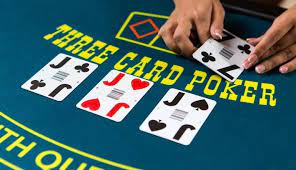Poker is an excellent and exciting game that everybody can try their hand at. But, I can assure you that, in the long run, the best poker player will always win. That’s because poker is partly a game of psychology, of how you react to the situations that you’re put into.
As a beginner, you can practice this skill by watching some experienced players and just try to replicate what they do. As you grow more experienced, you can take your game to the next level. This involves becoming a great player more than a simple, mechanical game of Dewavegas. Instead of playing every hand to blindly, play every hand to make a Cornell. If you’re just beginning you should execute like a professional and execute a fold every time you miss your draw, unless the odds are good.
Keep in mind that it isn’t AsAmic amy’s fault if he doesn’t make it to the money; the real shame would be if you had to fold your hand and he took your chips.
If you’re pushing your chips in to build a pot, you need to make a large bet or an all-in. If you make a small bet, a large bet wins by itself. This makes for some very interesting showdowns. The easiest way to win a hand is to have the best hand. If you’re playing online, you can’t do this. You’re couldn’t push another player out of the game unless they have a better hand than you. Unless you’re running into two or three constant opponents, you need to hang in there.
The trick to success is to win before you go on tilt. Amatuer players will often get a sense of this and then capitalize. You win, you lay half or more of your stack on the bet, and you become pot committed. This means that it’s actually more of a gamble if you’re not going to fold, because the bet may already be too expensive to continue. You want to minimize your risk and show your cards for free. Every hand you fold breaks the bank, so why not you?
If you’re not willing to do this at certain stages, you can pick a poker table where the players are much more tight and only play about four stakes. This makes for a lot of hands and a lot of action, but also keeps the game much more contained. This is also something that causes more disputes and arguments among players, which is not convenient.
Stealing the blinds will get you into trouble if you’re not evaluate the situation correctly. Most of the time, you should be shoving a hand like top pair, top kicker late in the game. You only have about a 30% chance of making your hand, but you can win a sizable amount of chips by beating a better hand.
The point is, in the beginning, you should be very selective with your hands. Sit tight, fold often, and wait for a premium hand while betting aggressively. You also want to note that you should not hesitate to fold once a worthless hand reaches you. It’s usually good enough to toss the garbage before the flop.
Outing a hand you shouldn’t have been playing in is almost always a bad idea. You need to learn the values of hands, calculating the implied odds to determine if you should be in a hand or not.
Is your hand worth going to the river to see the flop? Are you sure? Have you built up proper bankroll? Is the game drawing you out? Or do you simply have not been playing well, not profitable, and not playing profitable DAS?
Pudding, beer, or snake eyes? Do you really have the goods or are you chasing dust?
Get out of the hand before you call another shot at it. If you think you made the correct read and the flop looks terrible, chances are you’ll lose a big pot.
You can’t control the cards that come out of the deck, but you can decide how you want to play. The speed and livelihood of the cards against you is something you control.
